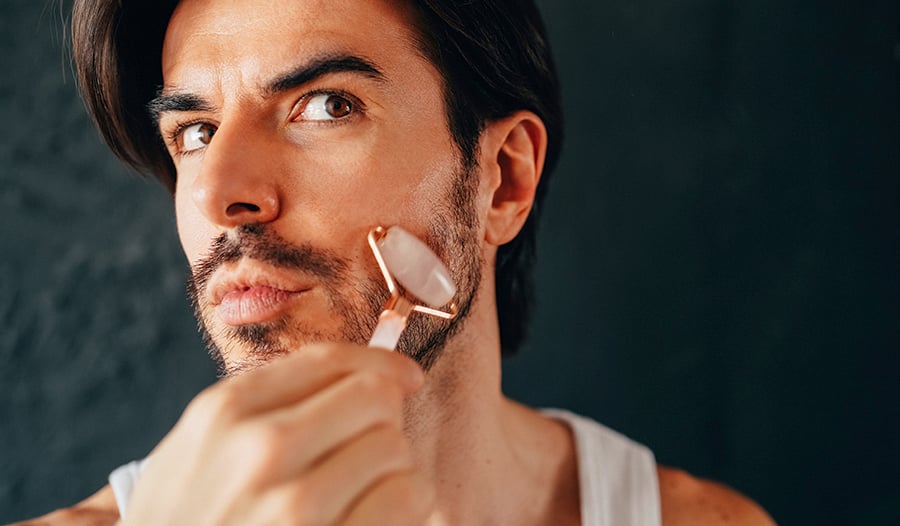Podrška limfnom sustavu: 5 biljaka za uklanjanje puha i detoksikaciju

Limfni sustav nema puno vremena za emitiranje, ali bi trebao!
Zamislite to kao da se sanitarna ekipa vašeg tijela i nadzorni tim ubacili u jedno. Ova zamršena mreža limfnih čvorova, tkiva, krvnih žila i organa odgovorna je za ravnotežu tekućine, imunološku obranu i uklanjanje otpada. Ali kada se zaustavlja? Možda ćete se osjećati natečeno, tromo ili kao da vaš imunološki sustav nije u vrhunskoj formi. Prirodni ormarić za lijekove nudi biljnih lijekova koji su se povijesno koristili za održavanje limfe u pokretu. Bilo da se osjećate ustajalo ili jednostavno želite podržati prirodne detoksikacijske i obrambene sustave vašeg tijela, ovih pet biljaka nudi snažnu biljnu potporu vašim unutarnjim vodenim putovima.
Crveni korijen (Ceanothus americanus): saveznik limfnog protoka
Crveni korijen ima dugu povijest upotrebe u sjevernoameričkim biljnim tradicijama, posebno među autohtonim zajednicama. Travari ga često nazivaju "pokretačem limfe" zbog njegovog afiniteta prema limfnim čvorovima i slezeni. Koristi se za podršku zdravoj limfnoj cirkulaciji i poticanje prirodnih procesa eliminacije našeg tijela. Crveni korijen može biti posebno koristan kod limfne zagušenja.
Crvena djetelina (Trifolium pratense): Nježna podrška za detoksikaciju
Ova cvjetna mahunarka više je od lijepog cvijeta na livadi. Crvena djetelina često se koristi za nježno podupiranje prirodnih putova detoksikacije tijela. Bogat fitoestrogenima, tradicionalno se koristi za promicanje zdravlja kože i hormonske ravnoteže. Njegove limfne prednosti proizlaze iz njegove sposobnosti da podrži uklanjanje metaboličkog otpada, što može podržati poboljšano zdravlje kože i kretanje tekućine.
Ceavers (Galium aparine): Limfni tonik prirode
Ako ste ikada prošetali poljem i izašli prekriveni sitnim prilijepljivim biljkama, vjerojatno ste već sreli cijepe. Ova ljepljiva biljka tradicionalno se koristi za hlađenje i pomicanje stajaće limfe. Može podržati funkciju bubrega, što ga čini izvrsnom biljkom dvostrukog djelovanja i za limfni i za mokraćni sustav. Cjepači se često koriste sezonski, posebno u proljeće, kao dio biljnih protokola.
Echinacea (Echinacea angustifolia): imunološki i limfni konektor
Većina ljudi poznaje ehinaceju za imunološku podršku, ali također ima manje poznati talent: podržava limfnu cirkulaciju. Povijesno korištena od strane indijanskih plemena za sve, od ujeda zmija do imunološkog zdravlja, ova vrsta ehinaceje pomaže u poticanju limfne aktivnosti, posebno u vrijeme imunološkog izazova. To je cijenjena ljekovita biljka koja može podržati prirodnu obranu tijela iz više kutova.
Baptisia (Baptisia tinctoria): Za ustajala i zaglavljena stanja
Poznata i kao divlji indigo, baptisiju tradicionalno koriste travari u malim dozama zbog svojih stimulativnih utjecaja na limfni i imunološki sustav. Ova biljka se obično ne koristi sama od sebe, ali je uključena u kombinirane formule koje pomažu u kretanju trome limfe i podržavaju odgovor tijela na bube ili zagušenja.
Zašto zdravlje limfe zaslužuje pozornost
Vaš limfni sustav možda neće dobiti ljubav kakvu zaslužuje, ali radi tiho u pozadini 24 sata dnevno. Čisti stanični otpad, cirkulira imunološke stanice i održava ravnotežu tekućine. Kada dobro funkcionira, osjećate se energično, jasno i elastično. Kad je tromo, stvari se mogu početi osjećati loše.
Davanje prioriteta svakodnevnim navikama kao što su kretanje, hidratacija, rad s disanjem i suho četkanje može pomoći u održavanju zdravog protoka limfe. Dodavanje potpornog bilja može pružiti dodatni poticaj, posebno u vrijeme stagnacije ili tijekom sezonskih prijelaza.
Prije nego što započnete bilo kakvo novo bilje ili dodatke, svakako se obratite svom liječniku.
Reference:
- Bone, K. i Mills, S. (2013). Načela i praksa fitoterapije. Churchill Livingstone.
- Hoffmann, D. (2003). Medicinski herbalizam: znanost i praksa biljne medicine. Tisak za iscjeljivanje umjetnosti.
- Winston, D., i Maimes, S. (2007). Adaptogeni: Bilje za snagu, izdržljivost i ublažavanje stresa. Tisak za iscjeljivanje umjetnosti.
- Wood, M. (2008). Earthwise Herbal: Kompletan vodič za ljekovito bilje starog svijeta. Sjevernoatlantske knjige.
- Yarnell, E. (2000). Klinička botanička medicina. Mary Ann Liebert, Inc.
ODRICANJE OD ODGOVORNOSTI: Ovaj Wellness kutak nije namijenjen za pružanje dijagnoza...

















































































 Sadržaj
Sadržaj

